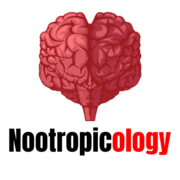Can Modafinil Cause Heart Attack?
Modafinil, also known as Provigil, is a drug used to treat several sleeping disorders, including narcolepsy, shift work sleep disorder and excessive daytime sleepiness associated with obstructive sleep apnea/hypopnea syndrome.
Modafinil side effects may occur because of the drug's mechanism of action. It works by affecting chemicals in the brain that help regulate wakefulness and appetite (e.g., dopamine, histamine).
Modafinil can also cause serious side effects not related to its mechanism of action. One serious side effect is an increased risk of experiencing heart attacks or strokes if you're at an elevated risk for cardiovascular problems.
Anyone who has a history of heart disease or stroke should consult his or her doctor before taking Modafinil.
If you've previously suffered from any form of heart disease, you're at a higher risk for developing another heart condition. Modafinil will put this risk even higher.
What The Science Says
A 2014 study published in the journal Research in Cardiovascular Medicine found that Modafinil can substantially increase your risk of experiencing cardiovascular issues and other health problems such as strokes, heart attacks and death.
Modafinil may cause blood clots or blockages that can obstruct the flow of blood to the heart. This could trigger a myocardial infarction (i.e., a heart attack). It could also trigger an arrhythmia (an abnormal heartbeat) or sudden cardiac arrest.
Furthermore, it can cause hyper-coagulability which is when there's excessive bleeding and clumping together in your blood vessels, increasing the likelihood of stroke and internal bleeding.
Modafinil may also increase your risk of suffering a stroke since it increases blood pressure levels in some individuals which is already high as it is because of obstructive sleep apnea syndrome or taking other drugs to treat sleep disorders.
How Modafinil Affects The Heart
Modafinil, like all stimulants, works to keep the brain alert and awake. But unlike many stimulants it does not affect serotonin levels and as such has no effect on dopamine levels in the brain. This is why it does not lead to hyperactivity or anxiety in people who are on it for sleep disorders.
However, because it affects dopamine levels in the body, Modafinil can also cause abnormal heartbeats. This is why they can cause clots that can block blood flow to the heart which may cause a heart attack.
Some of the symptoms of a possible heart attack include: chest pain, shortness of breath, nausea or vomiting and dizziness.
Modafinil is also very risky for people who already have heart issues such as heart disease or stroke or are experiencing a blood clot.
For some people, it may interfere with the body's natural ability to regulate blood pressure levels and increase heart rate as needed.
Occasionally, people have experienced more serious adverse effects that may require emergency medical attention.
These include:
- Irregular heartbeat
- Heart palpitations or tachycardia
- Sudden cardiac arrest and heart failure.
- Blood clots including ones that can obstruct blood flow to the heart which could lead to a heart attack and death.
People who have or are suffering from pre-existing heart conditions or stroke should consult with their physician before taking Modafinil.
If you're not sure if you're at an elevated risk for cardiovascular problems, there are several online tools such as the 10-year coronary heart disease (CHD) risk calculator that can help you establish your risk of developing heart conditions in the next decade.
Modafinil may cause blood clots or blockages that can obstruct the flow of blood to the heart. This could trigger a myocardial infarction (i.e., a heart attack). It could also trigger an arrhythmia (an abnormal heartbeat) or sudden cardiac arrest.
